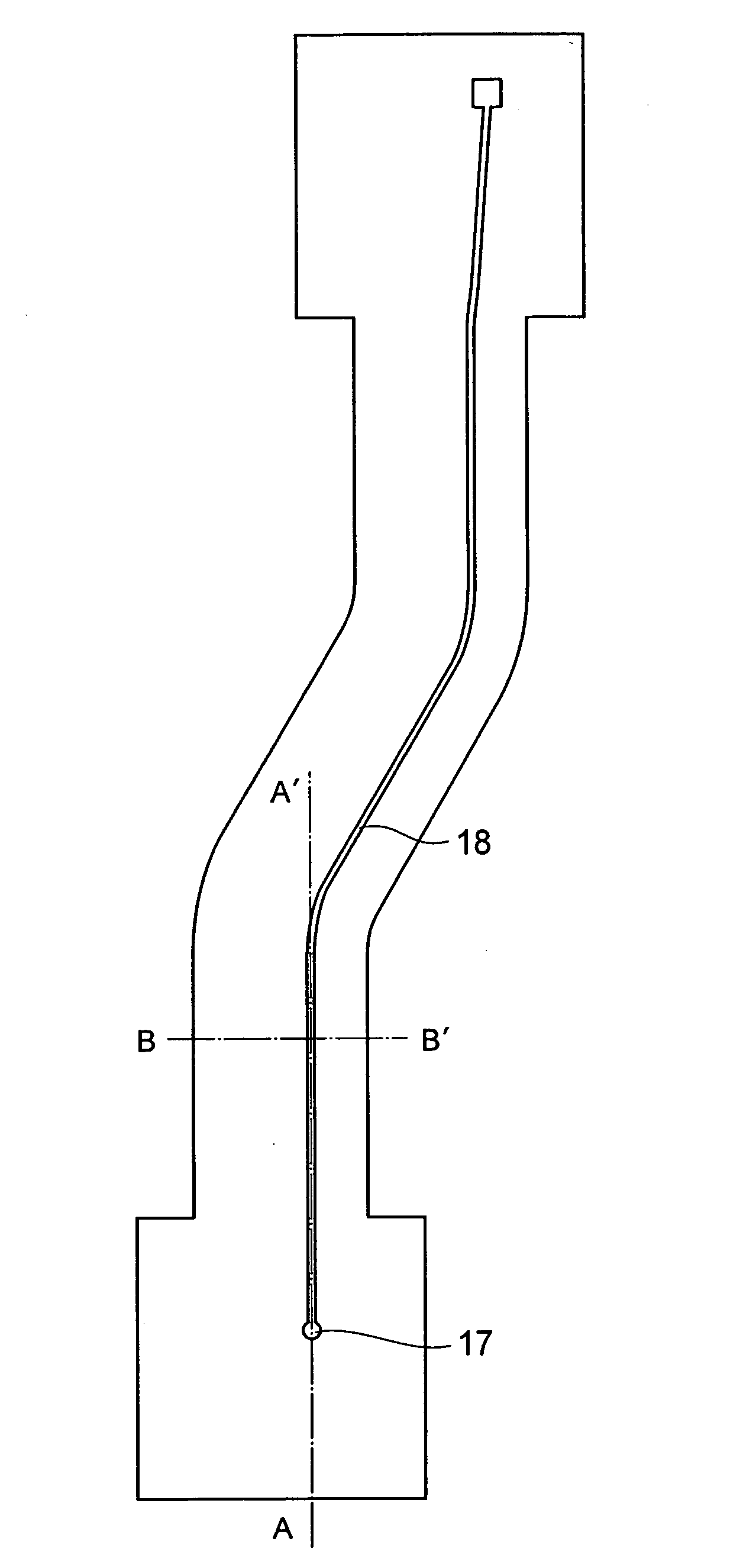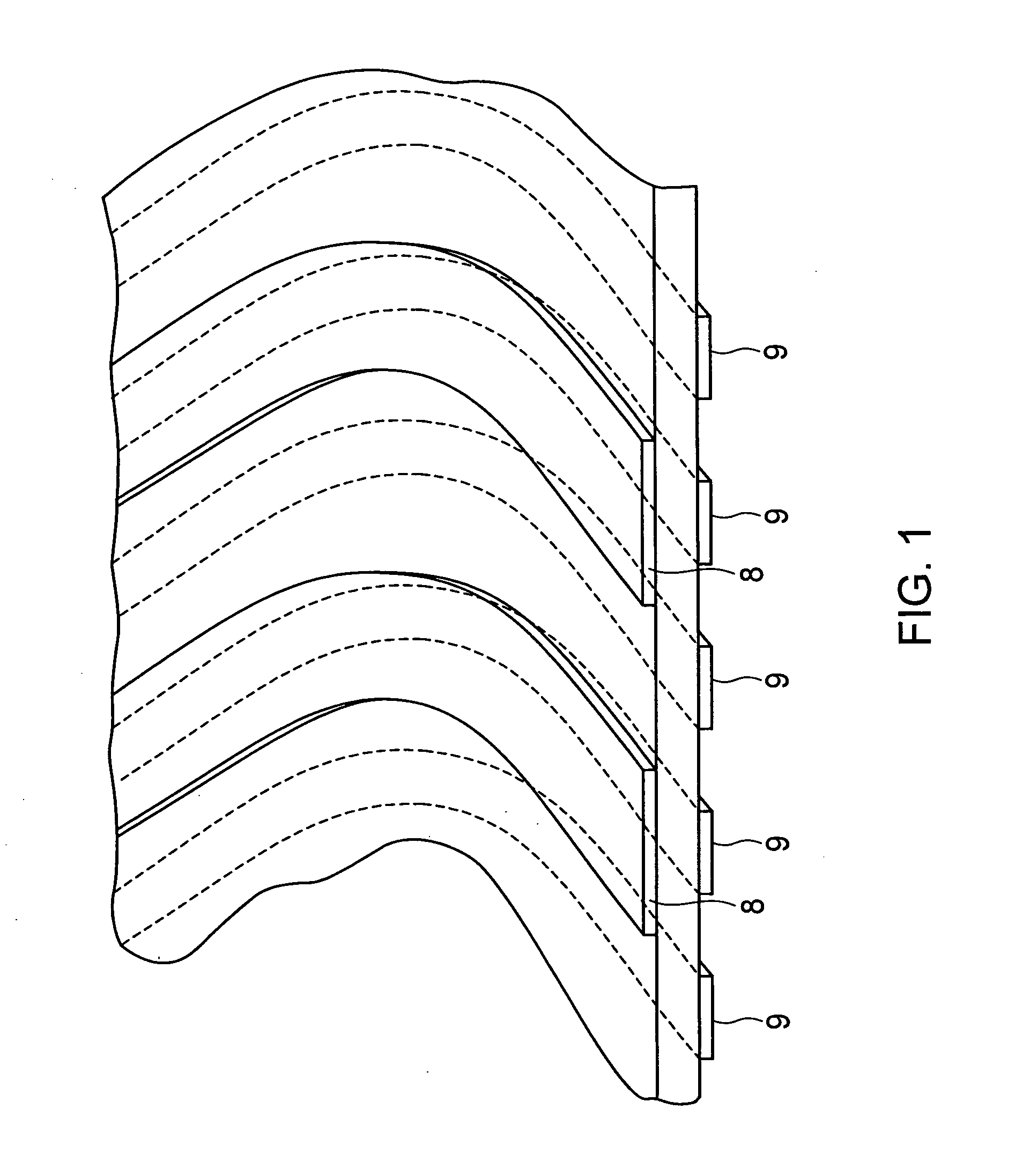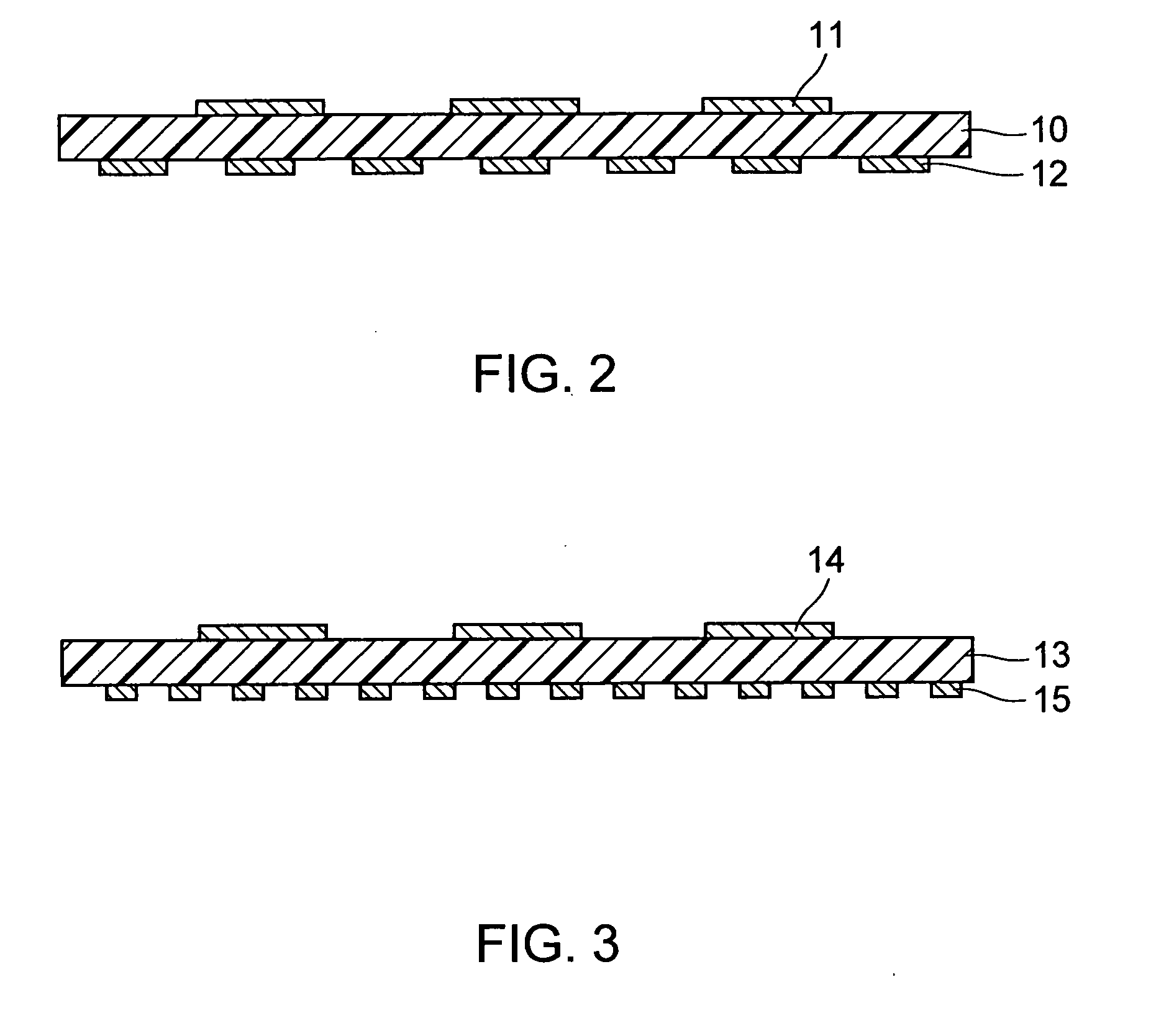Printed Wiring Board
- Summary
- Abstract
- Description
- Claims
- Application Information
AI Technical Summary
Benefits of technology
Problems solved by technology
Method used
Image
Examples
first embodiment
[0050]FIG. 2 is a sectional diagram of a microstrip line according to an embodiment of the present invention.
[0051]A double-sided copper-clad laminate named Metaloyal PI-25D-CCW-08D0 (#25) (manufactured by Toyo Metallizing Co., LTD.) is used as a starting material.
[0052]This material has been selected for the following two reasons.
[0053](1) In a microstrip line, a high dielectric factor of a substrate will increase capacitance between signal lines and grounding conductors, making it necessary to decrease signal line width to obtain desired characteristic impedance.
[0054]However, a narrow signal line width will increase the difficulty of forming wiring lines, making it impossible to accurately control impedance. Thus, polyimide which has a low dielectric factor is desirable for the substrate.
[0055](2) Copper foils used for copper-clad sheets normally go through a roughing process known as backside processing to ensure adherence to the substrate. However, increased inductance caused b...
second embodiment
[0058]FIG. 3 is a sectional view according to a second embodiment of the present invention. According to the second embodiment, a liquid crystal polymer is used for a substrate 13 instead of the polyimide according to the first embodiment, the liquid crystal polymer having a lower dielectric factor. This further reduces the capacitance between signal lines and grounding conductors, making it easier to process the signal lines of the given width.
[0059]Also, liquid crystal polymers, which have a lower dielectric-loss factor than polyimide, can reduce dielectric losses at radio frequencies. Thus, liquid crystal polymers are advantageous for high-speed signal transmission. A double-sided copper-clad laminate named ESPANEX LB-09-25-09NE (manufactured by Nippon Steel Chemicals Co., LTD.) is used as a starting material.
[0060]A substrate of a liquid crystal polymer is 25 μm thick and a copper foil which is originally 9 μm thick is half-etched to 5 μm. A microstrip line is formed using the h...
third embodiment
[0063]FIG. 4 is a plan view according to a third embodiment of the present invention. FIGS. 5A and 5B are sectional views taken along line A-A′ and line B-B′ in FIG. 4, respectively.
[0064]First, as shown in FIG. 5A(1), a double-sided copper-clad laminate 16 with a copper foil thickness of 4 μm is prepared. Available materials include double-sided copper-clad laminate Metaloyal PI-25D-CCW-04D0 (#25) (manufactured by Toyo Metallizing Co., LTD.) for the reasons shown in the first embodiment.
[0065]Next, as shown in FIG. 5A(2), a hole 17 for use as a via for interlayer connection is formed. It does not matter whether the via is a through-hole or blind hole. Regarding methods for forming the hole, examples include mechanical drilling, punching, laser drilling, plasma processing, and chemical etching in the case of a through-hole, or examples include laser drilling, plasma processing, and chemical etching in the case of a blind hole. In this embodiment, a through-hole with a diameter of 50...
PUM
 Login to View More
Login to View More Abstract
Description
Claims
Application Information
 Login to View More
Login to View More - R&D
- Intellectual Property
- Life Sciences
- Materials
- Tech Scout
- Unparalleled Data Quality
- Higher Quality Content
- 60% Fewer Hallucinations
Browse by: Latest US Patents, China's latest patents, Technical Efficacy Thesaurus, Application Domain, Technology Topic, Popular Technical Reports.
© 2025 PatSnap. All rights reserved.Legal|Privacy policy|Modern Slavery Act Transparency Statement|Sitemap|About US| Contact US: help@patsnap.com



